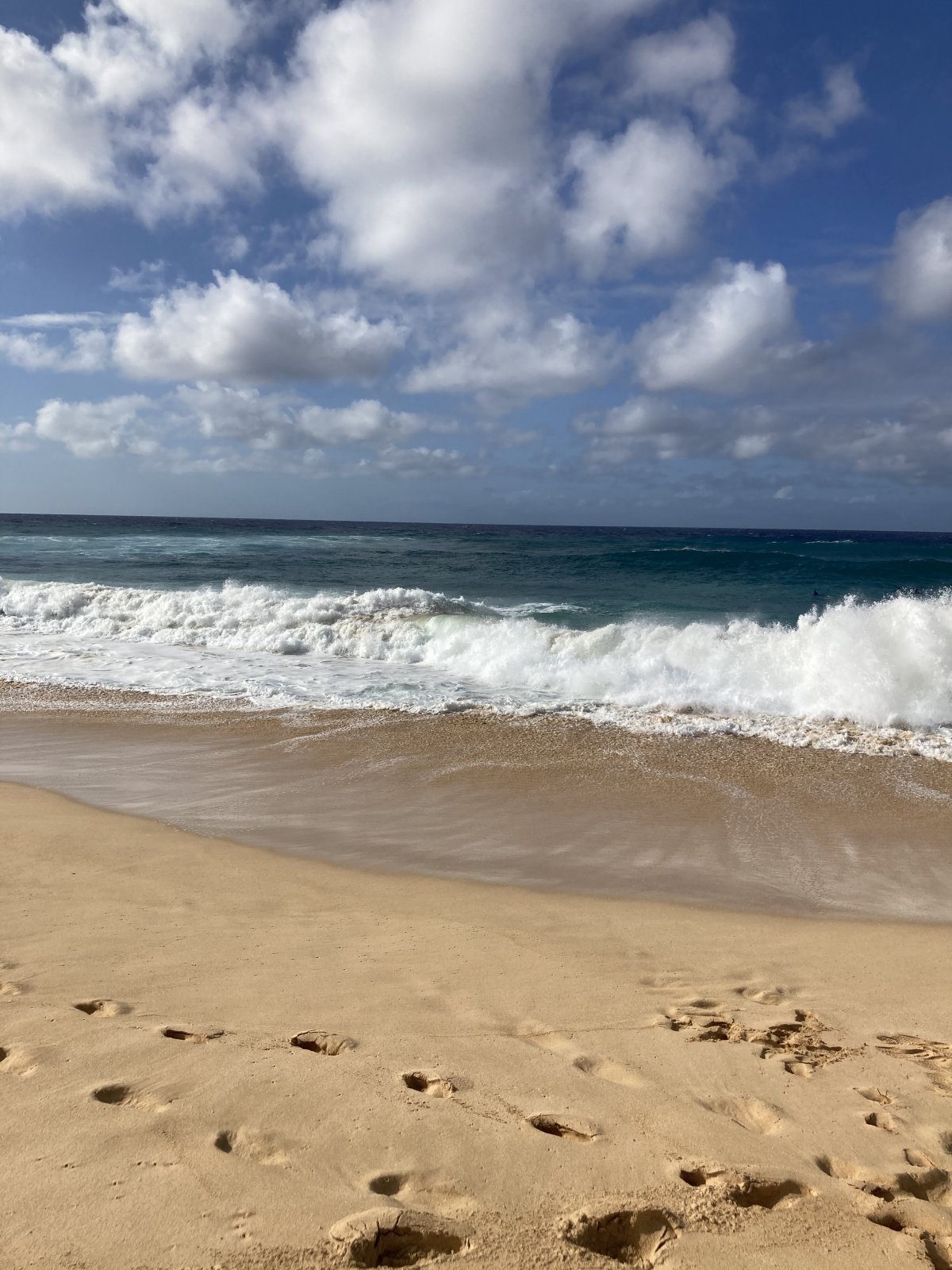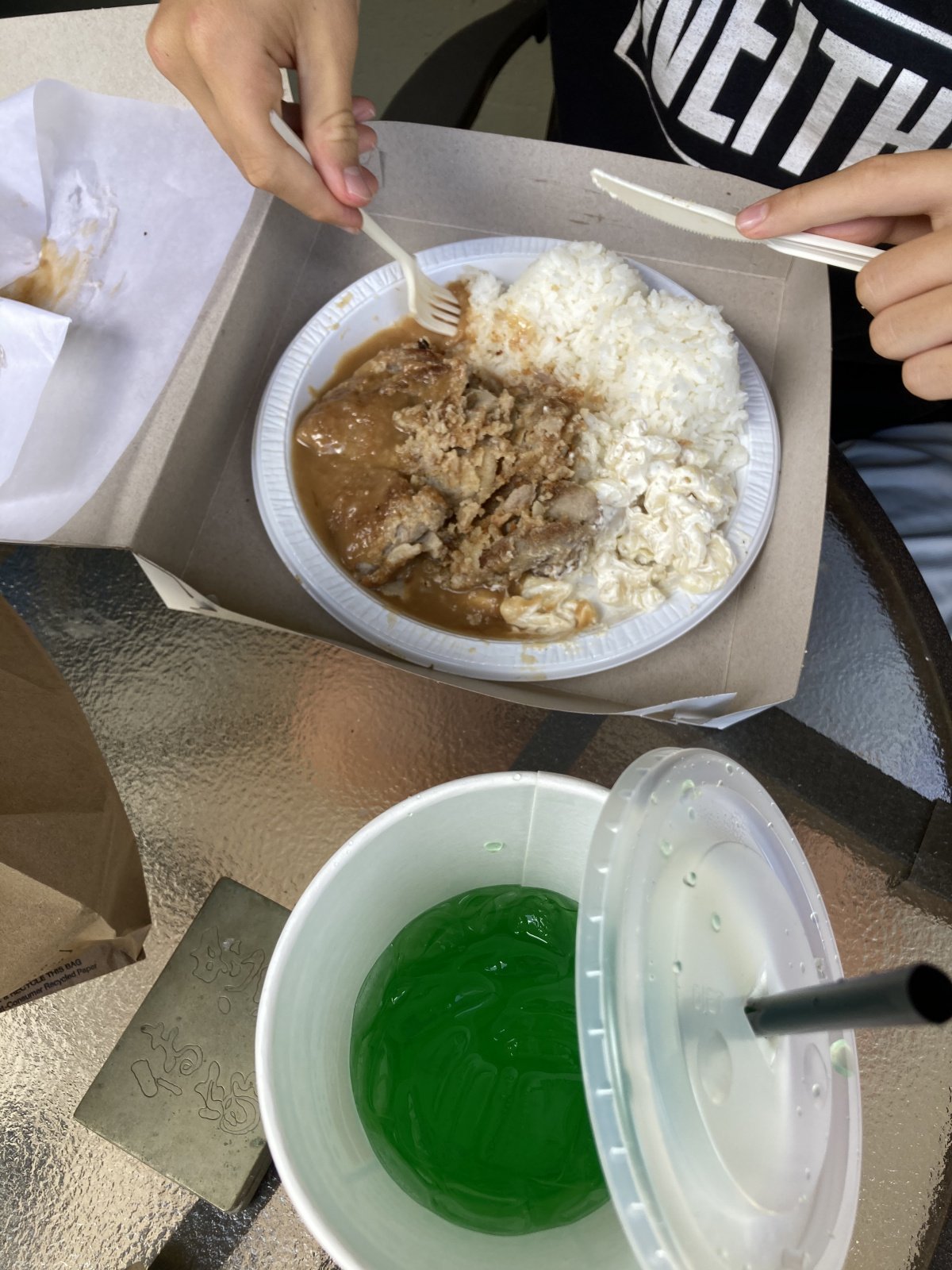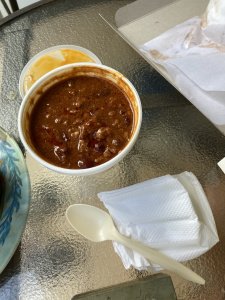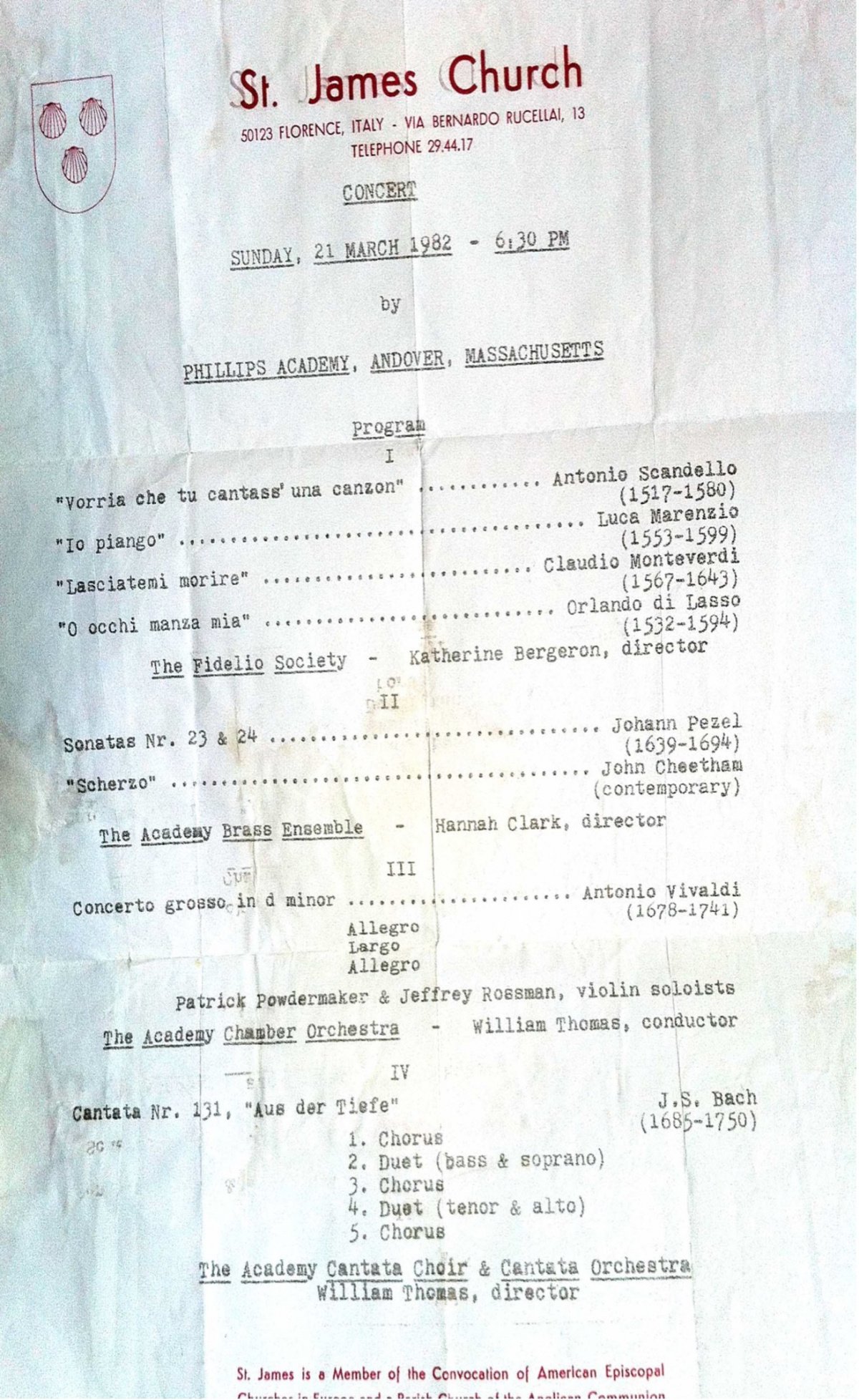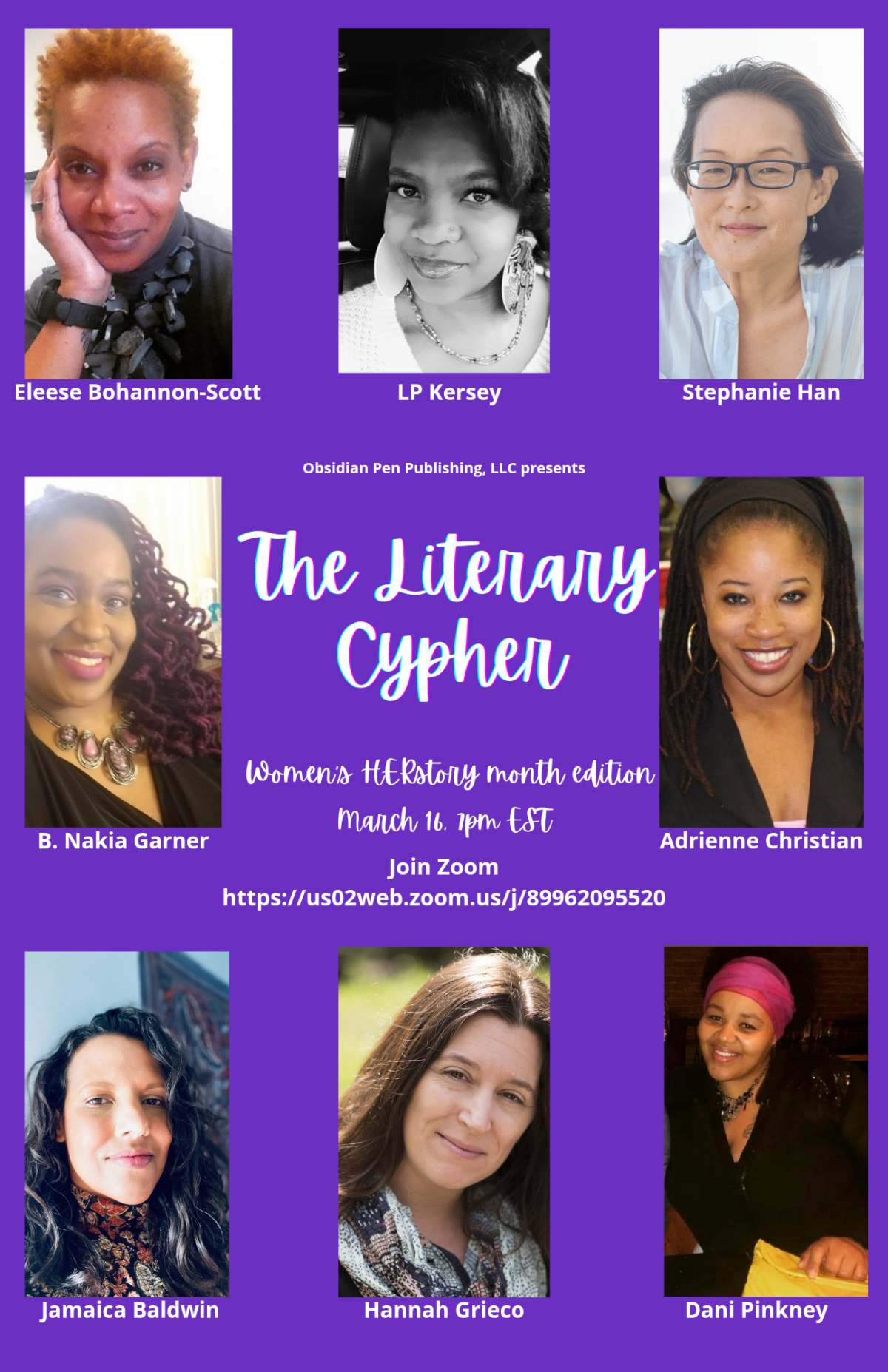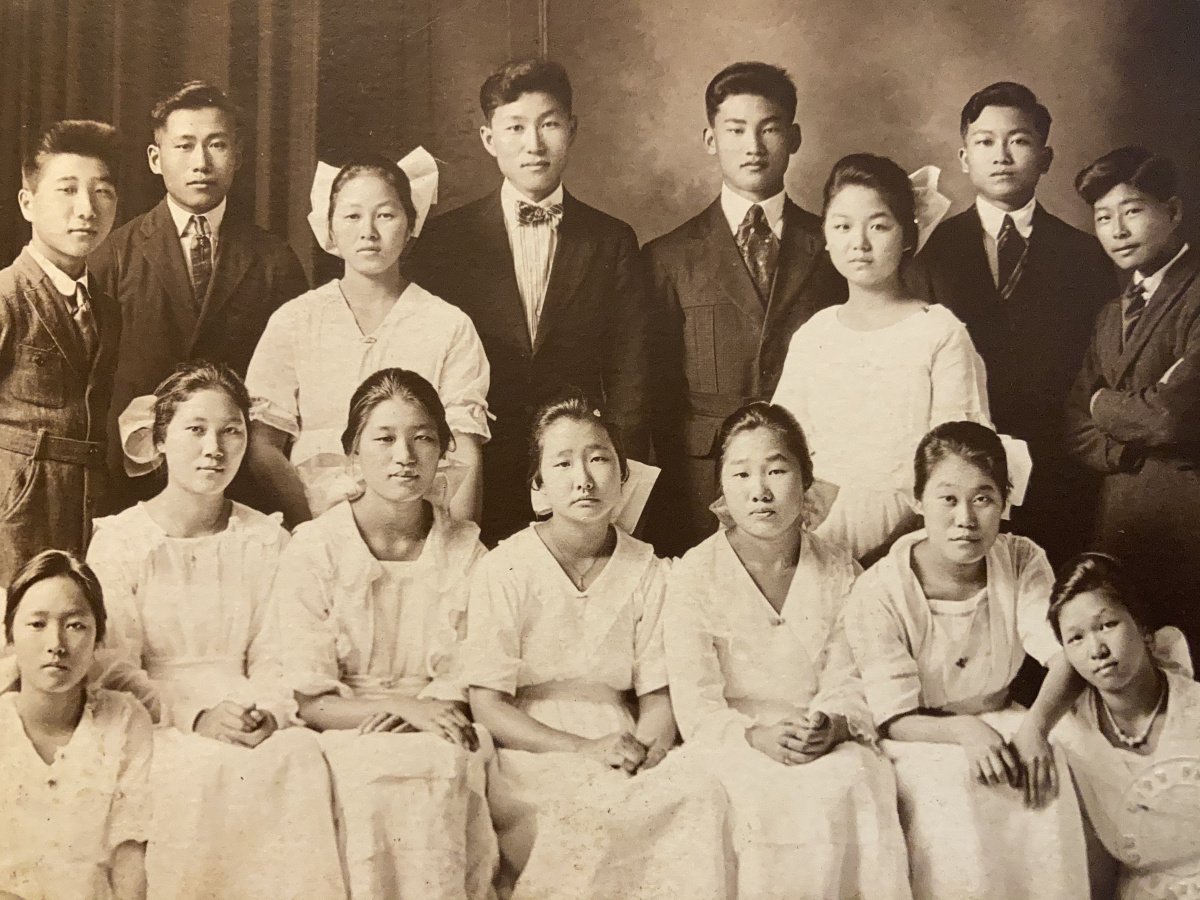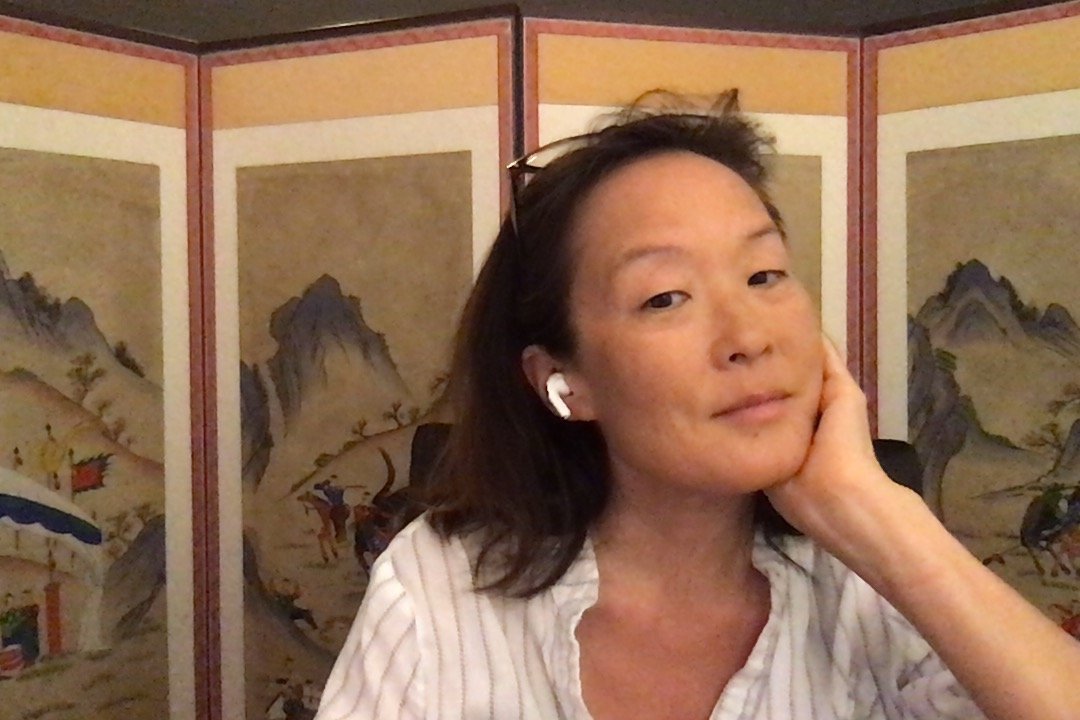I have written and posted about Out of the Depths in a few places. It was previously published, in a different form in Vice-Versa as a prose poem. I wrote this poem in a fit of absolute despair? I wrote it quickly. I’m reluctant to act like this was some mystical act of writing because in the end, writing is about going to the page whether you want to or not. But this was an example of those moments where the words fly in. They do this now and then, only if you don’t judge yourself, if you allow yourself to be vulnerable to the impulse of feeling. I was living in Hong Kong. I was supposed to be working on on the dissertation. This choir program was sent around that time.
I was touched by this. It was sent via email from one I think of in many ways as my very first boyfriend in that the emotional pitch of that adolescent relationship was intense: during that time I experienced a myriad of feelings I had never felt prior. It was exciting. I remember thinking, wow, I get it! I understand what the books say, what love means in the movies! Older people forget and dismiss the feelings of young people all the time, but because the feelings are brand-new, they are intense, wonderful, miserable, and complicated. I was 17. He was a friend’s older brother’s friend. He was backpacking around Italy at the same time I was singing in a school choir and we fell in love. There was Florence and Rome. Sculpture. Art. Food. My senses were suddenly awakened, to love, to beauty, to an environment that was unusual and lyrical. I think of this time with fondness. It was funny and lovely that he had kept that program all of those years. We have not seen each other in decades and like most people, now and then chat on social media.
At the time this was sent to me my marriage was more or less, emotionally over. There was work. Obligations. It was a time of severe unhappiness because I was hoping for a revival, an awakening for a moment that would ultimately never come, and I had, I think, suspected that it would remain in this state and it was driving me mad. This was the poem. It was the last time my ex would see me read a poem too–rather fitting, in hindsight. A lot of young women approached me after this reading. Memory. Heartbreak. Hope.
I also find it interesting that this was a choir program and it got me thinking more recently about how I used to like to sing. Then for years I went into silence. I stopped all song. I sang to my child when he was little, but by the time of this poem, I had entered a phase of quiet. He was slightly older. Silence reigned. I’m not singing yet, although I am more inclined to do so these days. Hula taught me to smile. Singing: defiance and joy. I was inclined to write in a peculiar space–something I can think of as akin to snow. Too many words to fill the page. This was written in that space.
I added a phrase long after the poem was done: Madness suffocates the heart. I took out the date, 1982 that was in the title because I wanted the poem to float more in time.
I had begun to make a lot of connections between past and present, an idea of traveling and finding love in an unpredictable geographic space. How we disappear and move. The why of hope and memory. How we become what we dream and how we persist in dreaming. Death. We ferry to the end. How desire brings us to our knees. A longing for intimacy beyond the violence of indifference.
Out of the Depths
I learn to sing for love: St. James Church, Florence, Italy, 1982.
Out of the Depths. Aus der Tiefe.
Bach knew voices peel notes before gods.
In foreign lands, terrain is the body.
Journeys: autumnal kiln walls,
cobblestones beating boot leather,
dust of clay and time.
An alabaster youth towers,
crowds gather, transfixed.
Madonna’s electric blues,
her child’s peach fists,
halos, halos everywhere.
This air shouts love and belief.
Passion: a cigarette nipping dusk,
March cold whipping the back of my knees,
a quiver and kiss, a penance for longing.
The hope and embrace of supple flesh,
passion so wide, skin barely holds it.
Memory is now.
What is Love,
but an ancient bridge over an ageless water,
flocks of birds that hurry to heaven,
skies that echo eyes?
In youth one knows its purpose:
the creation of memories, urgent, desperate, alive.
Such things follow me to China.
Here, continents and decades away,
I push back memory’s cloying scent
to stay alive.
What now, but to sift and store
my love from the past
remains in a box I always carry:
This is what it means to have innocence.
What of love now?
A familiar traveler,
a wanderer,
a man of rage and longing,
a rough rock of intelligence.
Madness suffocates the heart.
Poetry is difference, the unknown.
We unfold like origami—lines remain—
to create the map I came to follow.
* * *
The compass rose blooms and points,
directs us to deserts and possibility.
I know the gravity of love,
how it breaks and mends,
its flowers and soil,
the cracking of its perfect wood,
its thirsty jagged roots,
a light it demands and gives
or Death: this ocean comes.
I have moved countries again.
Again.
Time, time, from one cradle to another.
Love—bound in a man without a country,
began in the hiss of summer’s heat,
through the eye of an Empire’s possession.
This East swallows: I am one of its minions,
a snack, a witness, nothing more.
A boat ferries me over water
delivers me on hands and knees
to anchor dreams
that sweat from my flesh,
to love that awakens again.
Again.
